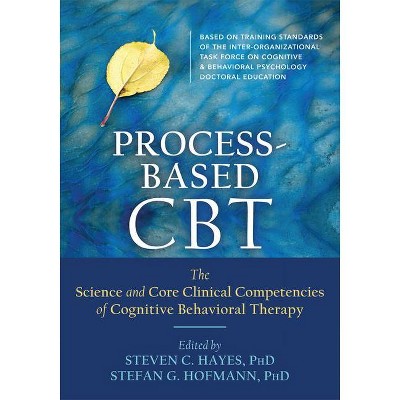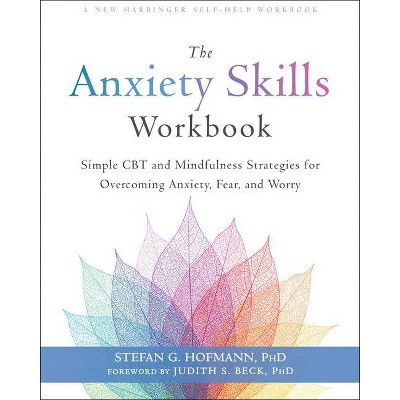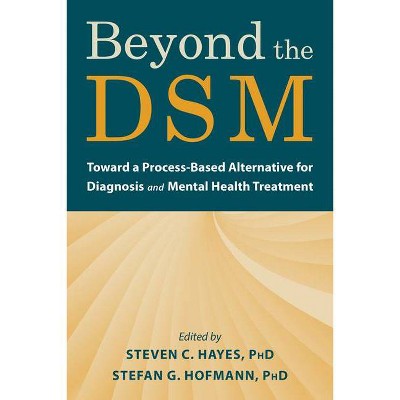Introduction to Modern CBT - by Stefan G Hofmann & Hofmann (Paperback)

Similar Products
Products of same category from the store
AllProduct info
<p/><br></br><p><b> Book Synopsis </b></p></br></br><i>An Introduction to Modern CBT</i> provides an easily accessible introduction to modern theoretical cognitive behavioral therapy models. The text outlines the different techniques, their success in improving specific psychiatric disorders, and important new developments in the field.<br /> <br /> <p>- Provides an easy-to-read introduction into modern Cognitive Behavioral Therapy approaches with specific case examples and hands-on treatment techniques<br /> - Discusses the theoretical models of CBT, outlines the different techniques that have been shown to be successful in improving specific psychiatric disorders, and describes important new developments in the field<br /> - Offers useful guidance for therapists in training and is an invaluable reference tool for experienced clinicians</p><p/><br></br><p><b> From the Back Cover </b></p></br></br>Cognitive Behavioral Therapy, a simple, intuitive, and transparent treatment, is considered by many to be the most effective form of psychotherapy. It encompasses a family of interventions that share the same basic idea, namely that cognitions profoundly and causally influence emotions and behaviors and, thereby, contribute to the maintenance of psychiatric problems. <i>An Introduction to Modern CBT</i> provides the reader with an easily accessible introduction to current models of cognitive behavioral therapy, and describes important new developments in the field, including attention retraining strategies, acceptance techniques, disorder-specific emotion regulation skills, and loving kindness, and mindfulness meditation.<br /> <br /> <p>The text outlines the different techniques, ranging from behavioral activation procedures to metacognitive strategies that have been shown to be successful in improving specific psychiatric disorders, and further introduces many modern and disorder-specific CBT techniques. The author makes use of concrete case examples for additional clarity throughout the text, and chapters are structured logically and consistently. <i>An Introduction to Modern CBT</i> serves as a scholarly review of contemporary CBT that provides both a useful guidance for therapists in training, and an invaluable reference tool for the more experienced clinician looking for a one-step, up-to-date treatment guide to the field.</p><p/><br></br><p><b> Review Quotes </b></p></br></br><br><p>Hofmann's non-defensive and even-handed approach lends the book unprecedented breadth and depth, unbiased by allegiance to any proprietary model. His thoroughgoing commitment to science as the only legitimate guide to the growth of CBT makes this book the most powerful of its kind. (<i>Cognitive Behavioral Therapy Book Reviews</i>, 2012)</p> <p>"Nevertheless, this book is a great read and will serve as a permanent reference resource for anyone searching for an engaging introduction to modern CBT." (<i>British Psychological Society</i>, 2012)</p> <p>This well-produced book is clearly written and nicely illustrated. It starts off by presenting the basic tenets of CBT, and then describes how the approach can be applied to some of the most common mental health issues... this book would make an excellent core text for introducing trainees to the fundamentals of a CBT approach to common mental health problems. (The Psychologist, April 2012)</p><br><br>This well-produced book is clearly written and nicely illustrated. It starts off by presenting the basic tenets of CBT, and then describes how the approach can be applied to some of the most common mental health issues... this book would make an excellent core text for introducing trainees to the fundamentals of a CBT approach to common mental health problems. (The Psychologist, April 2012)<br><p/><br></br><p><b> About the Author </b></p></br></br>Stefan G. Hofmann, Ph.D. is Professor of Psychology and the Director of the Psychotherapy and Emotion Research Laboratory at Boston University. He has been a Board Member of the Academy of Cognitive Therapy and is an advisor to the DSM-V Development Process. He is the author of more than 170 peer-reviewed journal articles and book chapters, and has published seven books. His primary research interests focus on treatment research for which he has received many research awards. In addition to lecturing clinicians world-wide in cognitive behavioral therapy, he is a licensed psychologist and has a private practice.
Price History
Price Archive shows prices from various stores, lets you see history and find the cheapest. There is no actual sale on the website. For all support, inquiry and suggestion messagescommunication@pricearchive.us




















